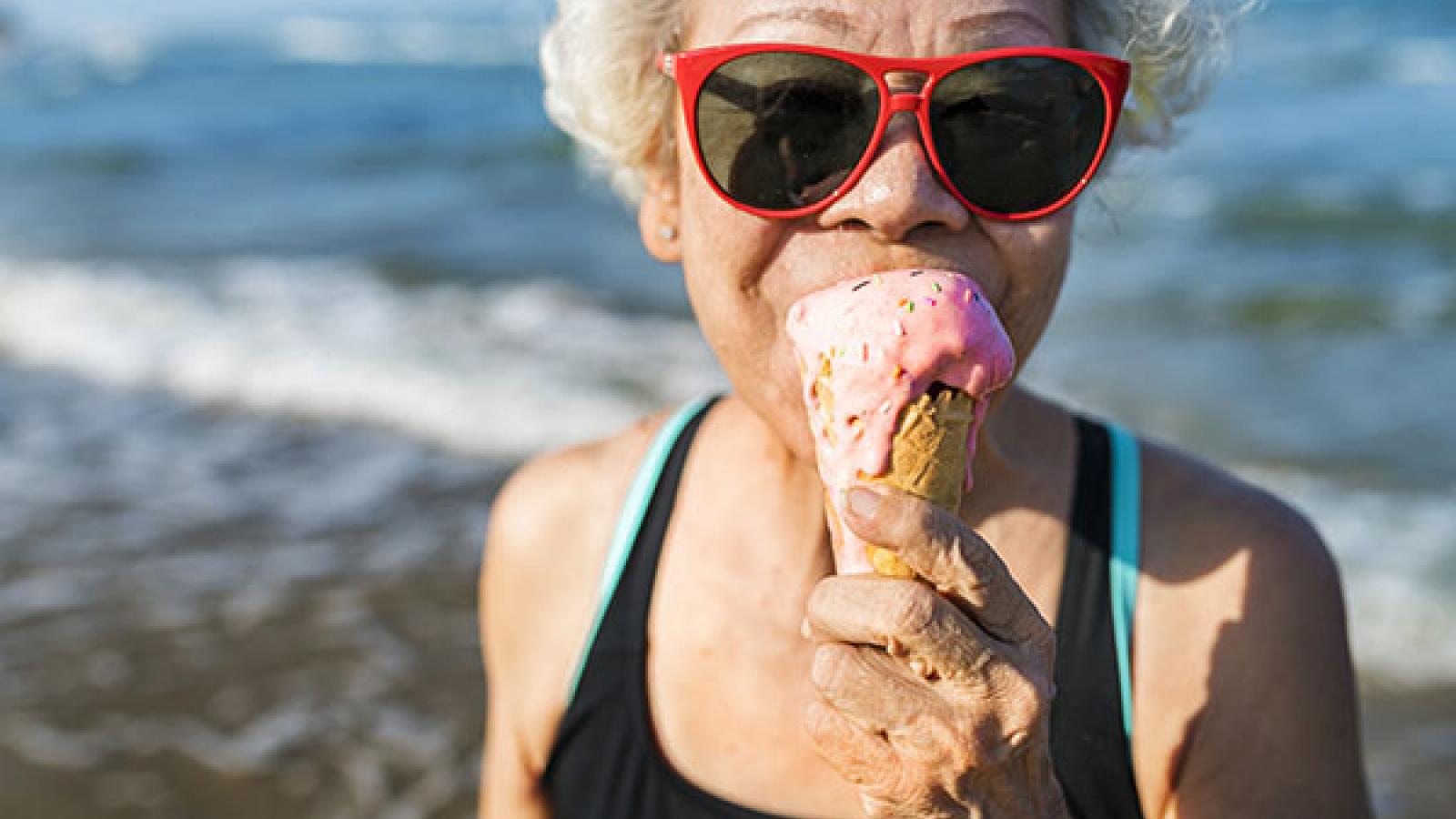Myths vs. Facts: How Do Summer Temps Affect Your Heart?

Find out more about your heart's role in keeping your body cool.
Many people find it difficult to tolerate summer heat, when temperatures and humidity start to soar. But if you have a heart condition, you may find it harder than most to handle the heat or to cool down when the air gets hot and steamy. That's because your heart plays a part in helping your body keep cool – and when temperatures rise, your heart has to work harder.
If you have cardiovascular disease, it's important to take precautions during the summer so your body doesn't overheat. Otherwise you risk experiencing heat exhaustion or even heat stroke, which is a very serious condition. Although anyone can experience these conditions when it's hot, people with heart disease are at greater risk.
Below are some myths and facts that can help you learn more about the connection between your heart health and your ability to handle summer heat.
If you have heart disease, it's harder for your body to cool down.
- FACT: People with weakened hearts may not respond to the heat as well as people with healthy hearts. Narrowed arteries can limit blood flow to the skin and a damaged heart may not pump enough blood to effectively transfer heat from your body. When it's hot outside, your heart may need to circulate 2 - 4 times as much blood a minute as it does on a cool day.
Some heart medications can affect how your body responds to the heat.
- FACT: Medications such as beta blockers, ace receptor inhibitors, calcium channel blockers and diuretics may make your body more sensitive to heat. Some lower your hydration level or slow your heart rate, which reduces how quickly your heart can circulate blood. If you take these medications, have a heart condition, are overweight or are over age 50, you may need to take special precautions when temps soar.
If you feel dizzy when it's hot outside, it may be due to your heart.
- FACT: Your heart has to increase the amount of blood flowing to your skin when it's hot to keep your body cooler. Additionally, you lose sodium and potassium in addition to water when you sweat. This combination may lower your blood pressure quickly which can cause dizziness.
As long as your skin feels cool and moist, you don't have to worry about the heat.
- MYTH: Heat exhaustion and heat stroke are greater risks for people with heart disease. One sign of heat exhaustion is cool, moist skin. Others include headaches, light-headedness, weakness, nausea, vomiting and dark urine. If you notice any of these symptoms while you're exercising or spending time outside on a hot day, stop what you're doing and move to a cooler place. Drink water and use cool compresses to cool down your body.
Concerned about your heart's health?
If you are concerned about your heart health this summer, contact Guthrie’s Cardiac and Vascular Center. We have the region’s most experienced cardiovascular team who are welcoming patients across Guthrie’s coverage area.
From routine check-ups to post-surgery cardiac rehab, Guthrie’s heart team can make sure your heart is its healthiest this summer. To schedule an appointment, call 866-GUTHRIE (866-488-4743) or click here.
Copyright 2020-2021 © Baldwin Publishing, Inc. All rights reserved. Health eCooking® is a registered trademark of Baldwin Publishing, Inc. Cook eKitchen™ is a designated trademark of Baldwin Publishing, Inc. Any duplication or distribution of the information contained herein without the express approval of Baldwin Publishing, Inc. is strictly prohibited.
Date Last Reviewed: June 17, 2020
Editorial Review: Andrea Cohen, Editorial Director, Baldwin Publishing, Inc. Contact Editor
Medical Review: Perry Pitkow, MD
Learn more about Baldwin Publishing Inc. editorial policy, privacy policy, ADA compliance and sponsorship policy.
No information provided by Baldwin Publishing, Inc. in any article is a substitute for medical advice or treatment for any medical condition. Baldwin Publishing, Inc. strongly suggests that you use this information in consultation with your doctor or other health professional. Use or viewing of any Baldwin Publishing, Inc. article signifies your understanding and agreement to the disclaimer and acceptance of these terms of use.

